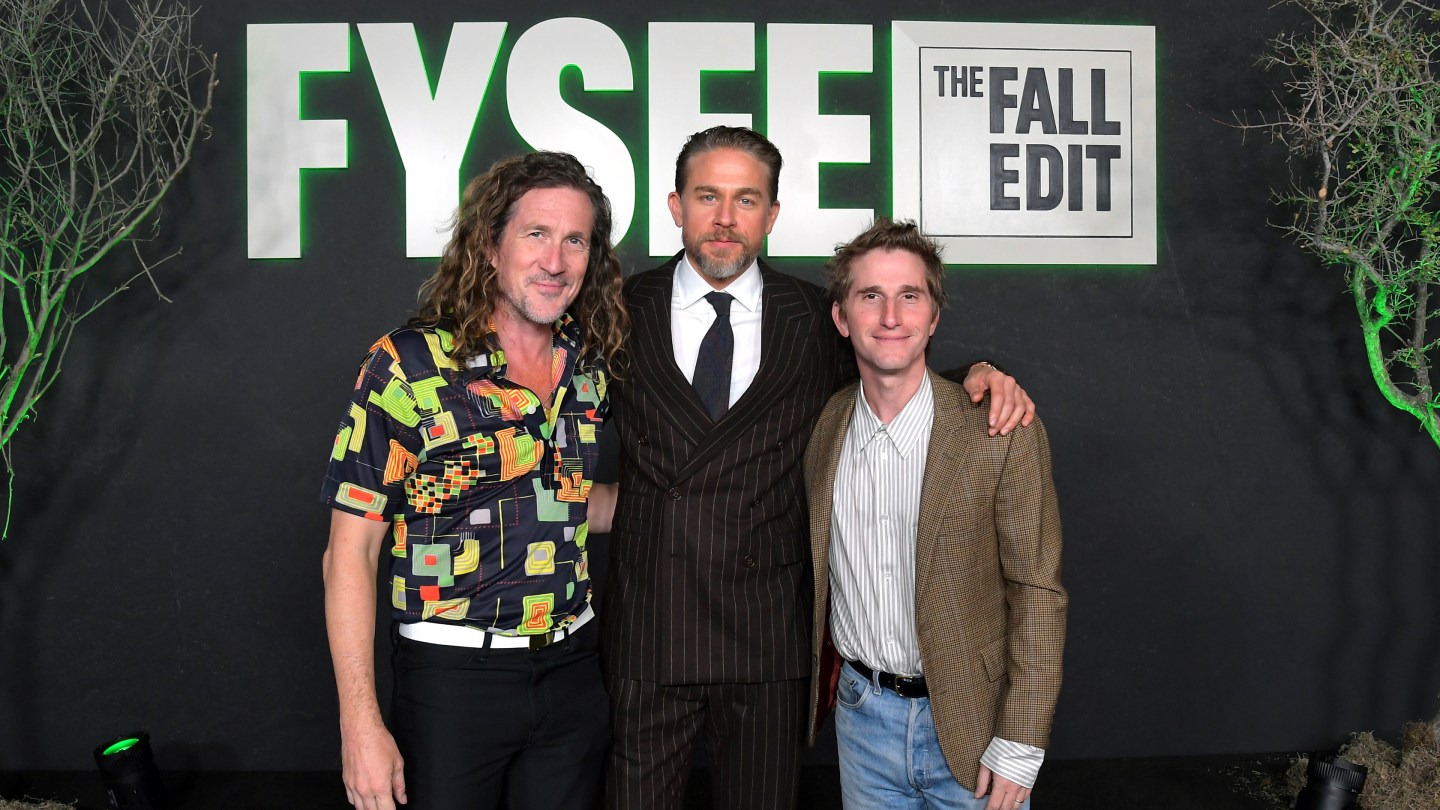At a Netflix For Your Consideration event on Sunday, Monster: The Ed Gein Story star Charlie Hunnam, co-creator Ian Brennan and the show’s creative team took a deep dive into their recently released season, which followed the notorious 1950s serial killer.
Season three comes after previous iterations centered on Jeffrey Dahmer and the Menendez Brothers, as Ian Brennan — who created the franchise alongside Ryan Murphy — noted “the show is tricky. People are always like, ‘It’s a serial killer show’ and you’re like, ‘Kind of, not really.’ Most murders and murderers are not interesting at all, and they’re certainly not interesting enough to spend 10 hours inside their head. Mostly, the challenge of the show is figuring out who we’re going to do, and there’s lots of fits and starts. We’ve done a lot of pilots that go straight into the trash; it’s a lot of guess and check.”
Gein, however, had been on Murphy’s mind for years and came to the forefront when Dahmer was obsessed with him. The killer also served as inspiration for Psycho and The Texas Chainsaw Massacre and led to a number of copycat attacks after he was known to kill women, wear their skins and dig up graves.
Executive producer and director Max Winkler told the crowd that “what I found very interesting was Ed didn’t really get to ever have a say in how he was perceived. His actions spoke loud enough and he died in the hospital. But as the series unfolds, you get to understand where he was at emotionally throughout all of this, which I find the most important thing.”
He continued, “It can be so reduced to just, yeah, he was crazy and he killed a bunch of people and made nipple belts; to actually get into the generational trauma and abuse that he suffered, the mental illness that he suffered, the time to be mentally ill in America, and how later on when he would go into the hospital, how failed he was by the mental health system set up by Nixon, I found really, really compelling and a story worth telling honestly and with compassion.”
Hunnam added that when “copycat killers became active” after Gein’s string of attacks, “Ed had the medical treatments to get him to be in a stabilized place, and he was utterly horrified by the consequence, this idea that he might have inspired these people to go out and do these horrific things.” Hunnam was Murphy’s first choice to play the role and joked that he was “tricked” into it by Winkler, who told him Murphy wanted to meet about a project “about a pill that you can take that will make you beautiful forever and we’ll shoot it in Rome.”
When he got there, he instead talked with Murphy for two hours about Gein and said yes right away when the mega-producer offered him the part; later when researching the killer, Hunnam admitted he thought, “I’ve really made a mistake here” when reading about the “heinous acts.” He was comforted in Murphy’s vision, though, explaining, “We were not really interested in what Ed did. We were trying to ask ourselves why he did what he did, and try to find the answer of what turns a human being into a monster.”
Brenner also spoke about some of his takeaways on how the story resonates today, as “the mixture of mental illness and male isolation equals danger, and it’s just everywhere. We live in a society that’s becoming more and more isolated, rather than less,” and the present-day murderers are also often lonely, mentally ill men. He added, “This sort of romp through these periods feels very, very present to me.”





